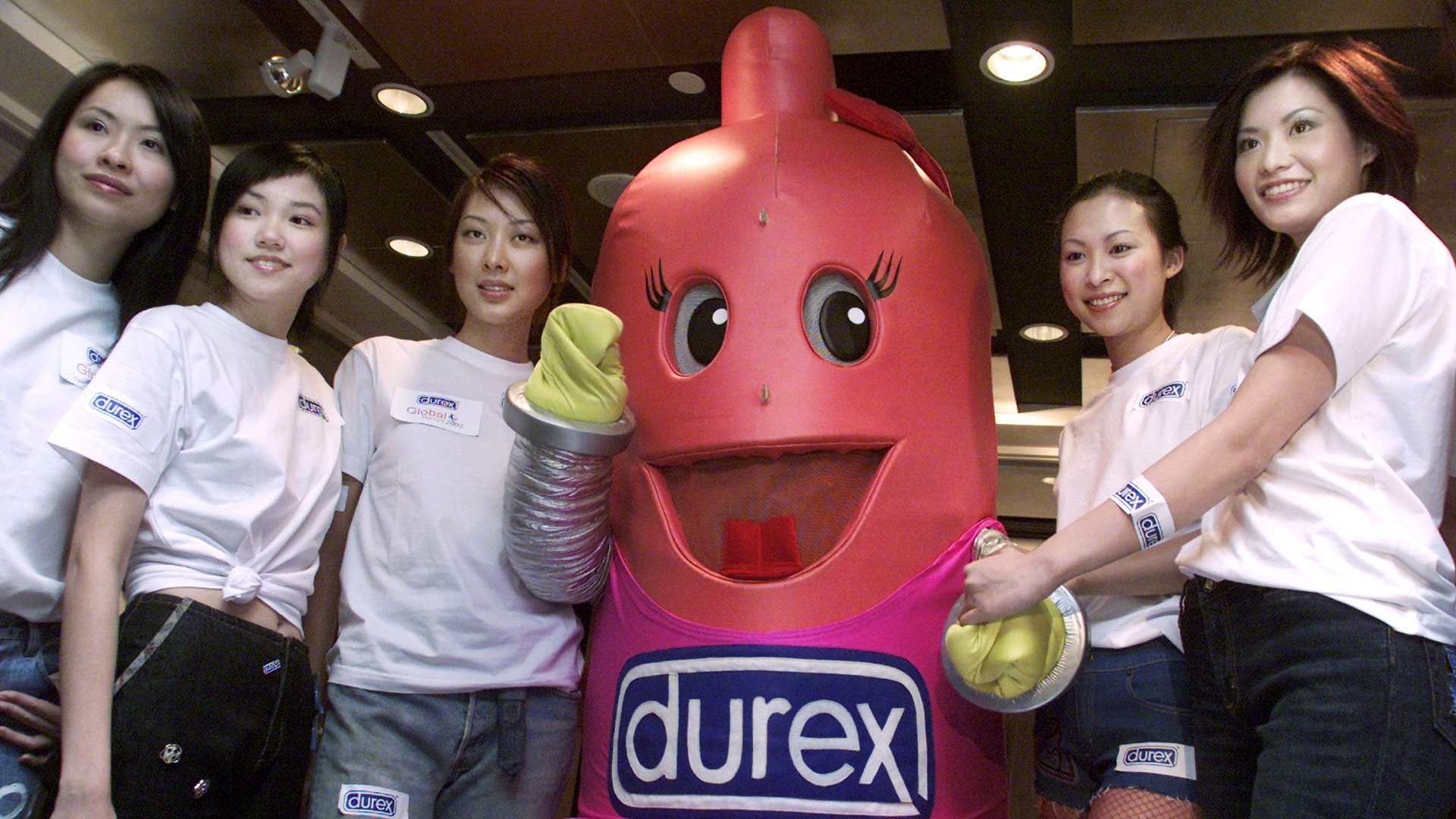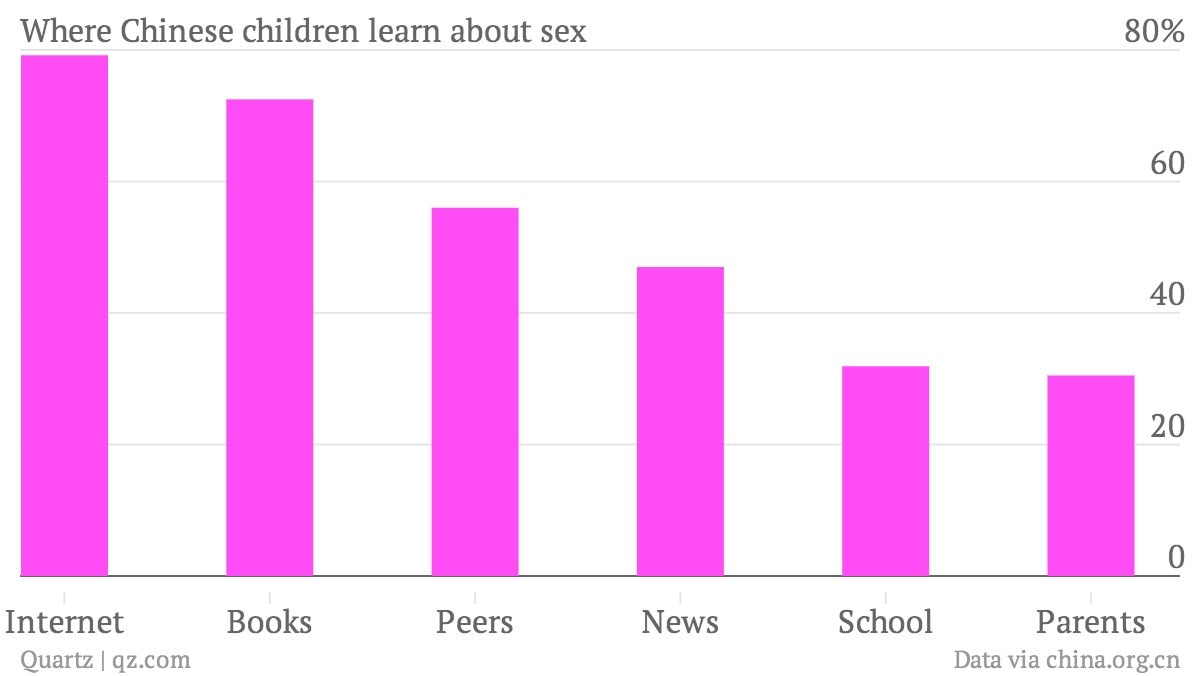One of China’s biggest growth markets: condoms
China is the fourth largest condom maker in the world, and yet its people don’t tend to use condoms—at least not until recently.


China is the fourth largest condom maker in the world, and yet its people don’t tend to use condoms—at least not until recently.
China’s condom market will grow by nearly 60% in the next five years, according to Bloomberg, which cites research by Global Industry Analysts. That could spell big profits for foreign condom makers, particularly the Jissbon and Durex brands.
So what’s changing? Talking about sex in public has long been taboo in China, so much so that sex education is seldom taught in schools. Even though a rapidly rising percentage of Chinese youth are having premarital sex, 90% of them know little or nothing about contraception, as a 2013 study found. Here’s a look at how they receive information about sex:

Even when young people adopt birth control measures such as intrauterine devices, sterilization and even abortions, they don’t tend to use condoms to prevent transmission of sexually transmitted diseases.
Unsurprisingly, then, rates of sexually transmitted diseases are climbing. In relatively prosperous Guangdong province, one in 2,000 people have syphilis, as Nandu Daily recently reported. New AIDS cases grew nearly 13% in the first ten months of 2012, compared with the same period in 2011. (And it’s not just young people; HIV rates among retirees have soared in the last few years.)
But as more young people have gained access to information about sexual health—through the internet and increasingly through universities and the government—the tide has started to turn.
That’s good news for Reckitt Benckiser, which owns the Durex brand with 30% of China’s condom market, making it the country’s biggest manufacturer. Jissbon, which is owned by the Australian company Ansell, claims 10% of China’s condom market and is its second-biggest manufacturer, according to Bloomberg.
Of course, those brands have to compete with China’s booming domestic condom manufacturing market. But like foreign infant formula makers, foreign condom brands have a big advantage: unlike with Chinese brands, consumers trust the quality control regimes of foreign companies, thanks to a slew of high-profile scandals involving faulty Chinese condoms that aren’t well regulated.